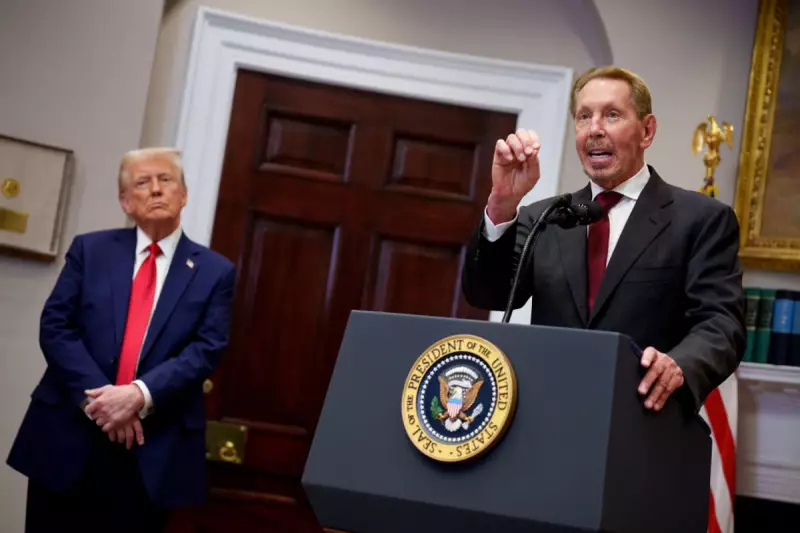
In a revelation that underscores the intersection of media, money, and political influence, a new report claims that Larry Ellison, the largest shareholder of Paramount Global, engaged in discussions with the Trump White House about removing CNN anchors whom the former president disliked.
The Alleged Discussions and Deal Dynamics
According to sources who spoke to The Guardian, these conversations occurred as Paramount was positioning itself to make a bid for Warner Bros Discovery, the parent company of CNN. The talks, described as largely casual, reportedly centred on the potential dismissal of prominent CNN hosts Erin Burnett and Brianna Keilar.
Part of Paramount's strategic interest in acquiring Warner Bros Discovery allegedly stemmed from Ellison's perceived closeness to Donald Trump. Insiders suggested this relationship could be leveraged to help the multi-billion dollar deal pass a crucial regulatory anti-trust review with minimal interference from the administration.
The discussions even ventured into programming specifics, including naming potential replacements for the anchors and the idea of CBS programmes, such as the iconic 60 Minutes, being broadcast on CNN. It is important to note that while Larry Ellison is the majority shareholder, he is not an executive at Paramount; his son, David Ellison, serves as the CEO of Paramount Skydance.
Background and Broader Acquisition Interest
This is not Paramount's first attempt to acquire Warner Bros Discovery. The company has previously submitted multiple unsolicited and unsuccessful offers for the media giant. The report suggests the Trump administration was favourable towards the younger Ellison's leadership at Paramount Skydance and CBS News.
This relationship was further evidenced by a $16 million settlement Paramount agreed to pay Trump related to a 60 Minutes interview with former Vice President Kamala Harris. In a separate move that aligned with conservative media preferences, CBS News also appointed commentator Bari Weiss to a leading role within its news division.
Paramount is not alone in its pursuit of Warner Bros Discovery. Other media titans, including Netflix and Comcast, have also expressed interest in a potential acquisition, setting the stage for a significant consolidation within the industry.
Regulatory Hurdles Appear Minimal
Should Warner Bros Discovery accept a purchase offer from Paramount, the primary obstacle would be an anti-trust review. However, a former official from the anti-trust division indicated to The Guardian that the deal was unlikely to be blocked.
"This won't pose serious antitrust issues," the former official stated, adding that the White House probably would not attempt to stop the transaction, noting "that’s just how the government relations game is played."
Adding to the sense that regulatory barriers would be low, Brendan Carr, the chair of the Federal Communications Commission (FCC), commented that such a deal would most likely not require any review by his agency. "I’d be very surprised if there was an FCC role at all in that type of transaction," Carr said.
The Independent has reportedly requested comment from Ellison, Paramount, and the White House regarding these allegations.




